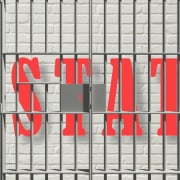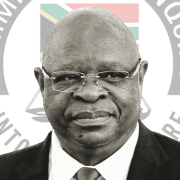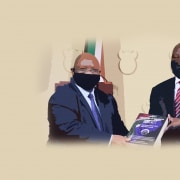|
Getting your Trinity Audio player ready...
|
President Cyril Ramaphosa is of the view that his administration has done a lot to address state capture and restore some of the institutions that were destroyed in its wake. He told Parliament last month that there was significant progress in government’s implementation of the recommendations of the state capture commission, chaired from 2018 to 2022 by Chief Justice Raymond Zondo.
“The Presidency provided each of the bodies to which such recommendations were directed with copies of each part of the State Capture Commission Report as they were received by the Commission, so that they may act on the recommendations in line with their respective mandates,” said Ramaphosa.
“The extensive actions that this administration has taken on the recommendations of the State Capture Commission, including the introduction of draft legislative changes that are currently before this House – have been detailed in several public reports.”
On the issue of members of his executive being implicated in the report by Zondo, Ramaphosa said any action that will be taken will be informed by the outcomes of investigations by law enforcement institutions looking into the allegations against them. The president has come under fire in the past for not having acted on the revelations, against the likes of Mineral Resources and Energy Minister Gwede Mantashe, Arts and Culture Minister Zizi Kodwa and deputy minister of human settlements water and sanitation David Mahlobo, among others.
Loss for Prasa whistle-blowers
Another update involves the labour case of whistle-blower Martha Ngoye, who has failed in the latest attempt to be reinstated by the agency following her unlawful dismissal three years ago by the Passenger Rail Agency of South Africa (Prasa). Ngoye, along with two other executives, Tiro Holele and Nkosinathi Khena, was dealt a blow when Prasa won its appeal to the Labour Appeal Court against an earlier ruling by the Labour Court to have them reinstated.
The trio had their contracts terminated in 2021 by the Prasa board, a move that the Labour Court ruled was unlawful and without good or proper cause. In his ruling in favour of Prasa, however, Judge President Basheer Waglay said the three had disavowed any reliance on the Labour Relations Act, therefore the only relief they were entitled to was specific performance, of damages.
He acknowledged that Prasa had not refuted the trio’s argument that they had been permanent employees of the agency, and therefore entitled to certain benefits. Furthermore, the Labour Court ruling of their terminations being unlawful was accurate, but on the basis of the legislation that they relied on in their reinstatement application, namely the Basic Conditions of Employment Act, and had not proven damages, that could not be ruled on.
Of the Labour Court relief sought by the three, Waglay further said their decision to seek specific performance because of financial prejudice at the risk of losing their income, was not a ground for granting the relief. “The Labour Court clearly failed to exercise its discretion. The relief granted was misconceived and the application should have been dismissed.”








